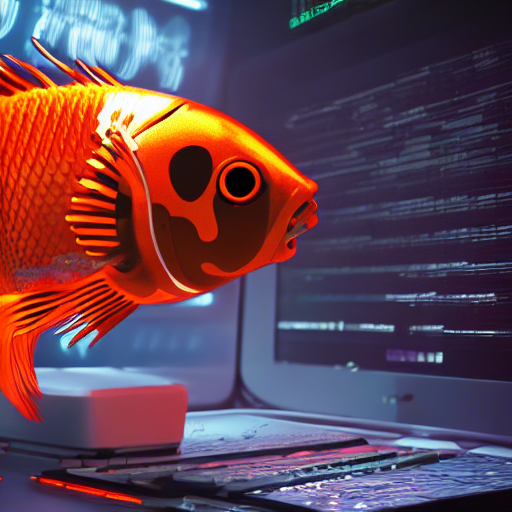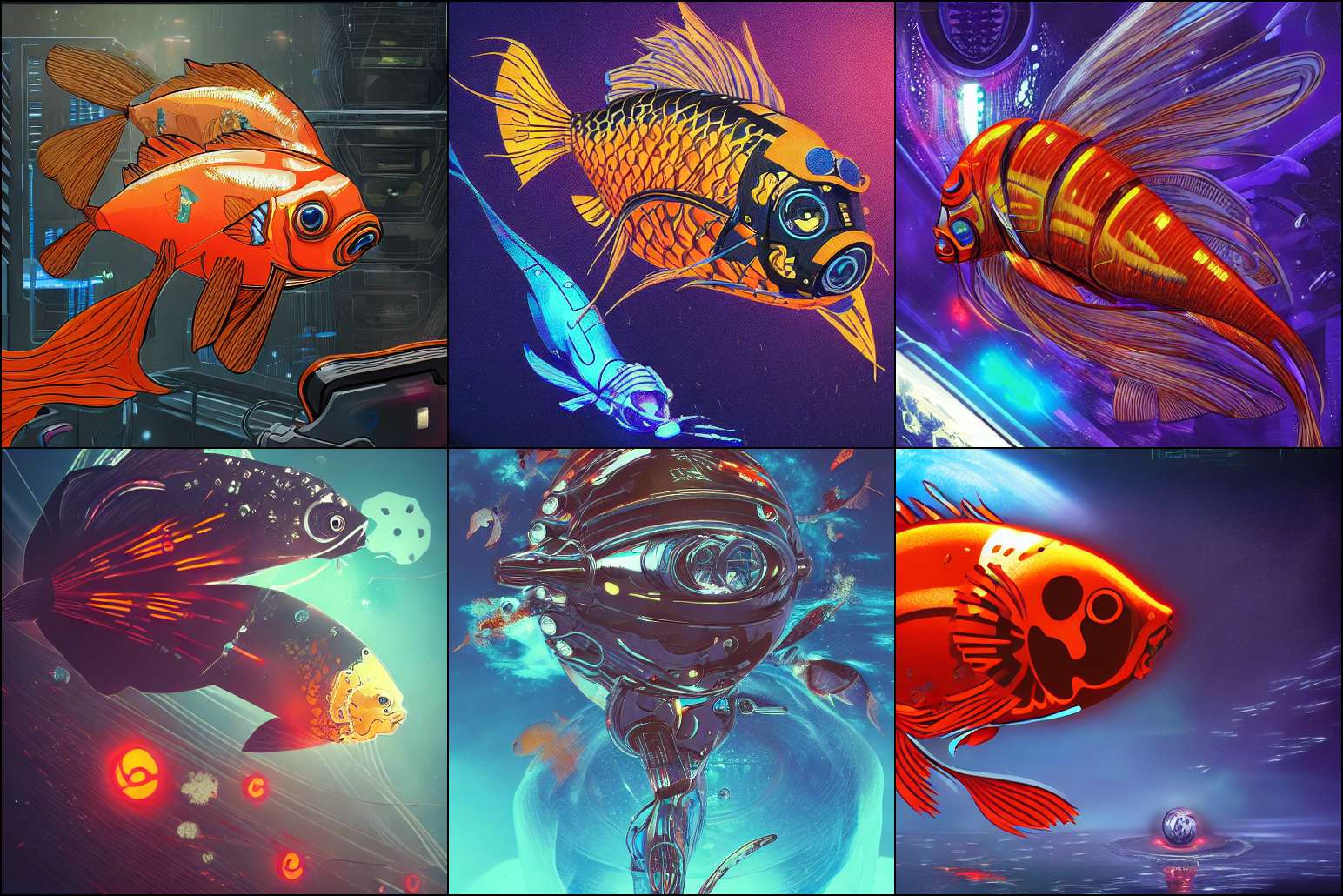
Downsides to Koi: not inherently smart as animals go, you'd have to make a lot of modifications.
Upsides: external eggs produced in large quantity, cheap to raise in lab conditions, lower ethical standard for experimentation than primates or dogs for example, there are already companies producing genetically modified koi as decorative aquarium pets so there's already an established industry pipeline for working with them, their skulls grow during their lifetime rather than primarily during fetal development & infancy like mammals which means it would be easier to give them bigger brains, lower chance of premature shutdown of program due to public backlash because they seem relatively low ethical concern and low threat (relatively passive natures, lack of object manipulation ability), social enough that they can be kept in groups without trouble.
This market made in reaction to:
The advantage of octopuses are that they are smarter to start with, and already have natural behaviors relevant to higher level thought like object manipulation, tool use, active large-prey hunting, and deception.
Disadvantages of octopuses relative to koi: harder to raise in a lab, harder to raise a bunch of them together, harder to keep imprisoned once smarter (even current octopuses are escape artists, the smarter each generation gets the worse this problem will become), octopuses die after mating so its harder to maintain a breeding population of the best-successes-so-far.
Advantages both have over mammals: external eggs, lower ethical concern (at least at first), high numbers of offspring-per-parent possible, lack of skull restriction to overcome, low risk of terrestrial habitat inflitration if facility escape occurs (easier to staff a facility not connected to natural water sources than a facility not connected to landmass).
Close date updated to 2040-12-31 3:59 pm
Edit for clarity on resolution conditions:
Will this market be resolved based on "legally recognized as a person by the USA or EU based on an increase in cognitive ability" like the other one?
@StevenK I would also resolve it upon finding strong evidence that I personally believed, so a somewhat lower standard than the other one. It would be something like "the fish can reliably pass IQ-type abstract puzzle tests & show proficiency with complex communication that puts it in a category above the smartest known non-human primates. Also, it has an approximate neuron count such that this seems plausible via current neuroscience understanding of information processing in vertebrates."
Note: I have subsidized this market and also expressed an implausibly strong opinion in order to kickstart gathering opinions on the matter. I am hopeful this market will draw interesting comments over the next 18 years. Perhaps indeed, it might motivate some bettor to research and divulge information about this being about to conclusively succeed or fail.
People are also trading
@MartinRandall The development of intelligent koi might depend on a successful implementation of neurolink, yes.
I’m sorry, am I missing something? Why on earth would we bother “uplifting” any species, let alone fish? For that matter, who exactly is “we”?
Seriously, not only would this take a colossal use of resources that could be used for the benefit of humanity instead, but it also has a lot of the same problems as artificial intelligence, in that there’s no guarantee that any of these “enlightened” animals will share our values. We’d be creating potential adversaries.
On a more practical note: what happens to this market if we never “uplift” a species? Does it just… never resolve until then?
@Kronopath We is me and Nathan. No point in arguing about it, we're just weird that way.
So this isn’t talking about “we” as in humanity or something, but a specific project the two of you are working on?
That’s useful context. I interpreted this question to be something very different, like “Humanity will obviously uplift random animal species for fun at some point in the future, maybe after the singularity, but which animal will we do first?” or something like that, which makes me immediately question the base premise/assumptions.
If this is more something that you’re specifically working to achieve, I have my doubts at your chances of success, but at least the premise is clearer.
@Kronopath we in this case is metaphorical; there are lots of weirdos like us. But if you don't think that any species will ever be uplifted, then it would obviously be dumb to bid in this market.
@Kronopath There are just some people who are deeply excited about having other intelligent species to talk to, and experimenting with intelligence in general. As for the resources, considering the rate of decrease of cost of genetic engineering, and the rate of increase of ease and efficacy, this will drop in cost from around a $100k project in 2022 to around a $10k project by 2030, to around a $5k project before 2040 (cost by then being dominated by aquarium costs rather than gen eng costs). That's well within the range of eccentric hobbyists. Have you heard of 'bio hackers'?
Moreover, most people looking at uplifting as feasible -- or inevitable -- are assuming a post-scarcity future, so this is not a 'we could spend those resources on humans' scenario, unless you mean increasing the birth rate to match resources.... But if you could have one more boring human or one more new type of sentient being, it is inconceivable to prefer the human.
I am extremely skeptical that anyone can uplift an entire species to full sapience for $100k in 2022. I am even more skeptical that someone could uplift a species for $10 in 2030, barring extreme circumstances like a (non-apocalyptic) AI-driven technological singularity happening before 2030 (which I also think is somewhat unlikely). Without that, I expect figuring out how to “uplift” a species would likely take more resources than curing diseases like cancer or Alzheimer’s, hence my reaction.
If you make prediction markets on whether uplifting can happen for those dollar amounts in those years, and you give a precise and unambiguous definition for what counts as “uplifting”, I will likely bet against you. (Assuming that definition matches what I think “uplifting” means.)
If you think it’s “inconceivable” that someone might prefer the existence of another human to a member of a random other species artificially brought to sapience, then I get the feeling you’re living in an extremely skewed social circle, because I expect that opinion would be the norm for the average person, if you explained to them what “uplifting” is.
Humans have a lot of values that are not necessarily shared by most animals. You might garner some sympathies if you talk about a species like dogs, which have been literally bred to be companions to us. But an “uplifted” crocodile would be literally a horror movie brought to life, and I expect a lot of people would realize this.
Ah, I reread your comment and realized I glossed over the point about this assuming a “post-scarcity future”. I agree that it would take something like this for uplifting to be feasible, but I’m skeptical of our ability to transition to that future in the near future without accidentally causing an apocalypse.
I think that’s the root of our disagreement and I’ll leave it at that.
@Kronopath another detail is that this is not about taking existing koi and making them intelligent, it's about breeding a small population of super-intelligent koi. So current dumb koi would continue to exist.
Also, I think the $10 was a typo for $10k.
@Kronopath Ah hah, you've caught me. Heh, yes, I am staring apocalypse in the face and trying to laugh it off while I strive for AI safety. I also am doubtful we will make it safely through to a happy future, but it cheers me up to occasionally daydream about all the fun things we get to do if we do survive. I only bother betting conditional on humanity not going extinct because... well, I don't care much about how prediction markets get resolved after I and everyone I love is dead.
@StevenK I would also resolve it upon finding strong evidence that I personally believed, so a somewhat lower standard than the other one. It would be something like "the fish can reliably pass IQ-type abstract puzzle tests & show proficiency with complex communication that puts it in a category above the smartest known non-human primates. Also, it has an approximate neuron count such that this seems plausible via current neuroscience understanding of information processing in vertebrates."
@StevenK I can assure you that as the creator I care far more about the integrity of my question answering than I do about play money. I would not accept a payment of $1000 to knowingly wrongly resolve a question. If there was a million dollars at stake, your objection would be valid, but there really really isn't. FYI, I don't currently have plans to accomplish this myself within the next 10 years.
@NathanHelmBurger I can vouch for your honesty in the external world. I also generally believe that betting things to your true belief one way or the other at the beginning of a market is a good idea, not a bad one, and that one should be honest about it but I'd even actively encourage more people to do it
@StevenK oh actually on second thought it does seem probably overcalibrated and I guess Nathan meant to subsidize at least partly. but I also suspect that is directionally his true belief about the underlying external variable. I would disagree with this expectation, but he knows more about the actual practice of neuroscience than I do. similarly I have made markets where I feel I know the true answer, and my purpose in making the market is to try to express that, but I'm still willing to commit to resolving to whatever actually happens despite that I made the market in order to bet that something crazy would happen very confidently.
@StevenK yeah, I don't really believe in calibrating to exact numbers before trading, because I think intentionally pushing markets out of calibration to improve liquidity improves estimates. making finitely wrong bets is potential pro-social.
@StevenK hmm... noted... I'm curious why you think that? my impression is a subsidy doesn't create a rubber banding effect, it instead makes it hard for small traders to have an impact, whereas buying too much in one direction strongly incentivizes small traders to show up and express their opinion
@L Yes, exactly! I was attempting to subsidize in a way which deliberately exposed me to risk in an attempt to pull in small traders. I am trying to 'buy' discussion/opinions on the topic.
@NathanHelmBurger I guess it's a strong incentive for one person to make one trade, but then after that trade the incentive is gone, and it creates a sense of uncertainty about what is really going on and gives the question author a stake in the outcome in a way that I think makes it harder for people to take the question at face value even though you don't otherwise seem untrustworthy.
@StevenK I hadn't considered that other people might take it as such a strong negative sign about the validity of the market. I'll take that into consideration in the future, thanks.
@StevenK I appreciate the feedback. In particular, thanks for helping me to clarify the resolution criteria. If I put as much thought into wording my questions correctly as I did into trying to come up with a good stable-diffusion prompt for the art for this, then maybe people would take my markets more seriously. 🤣
